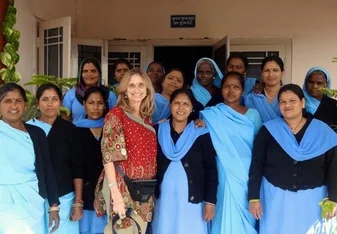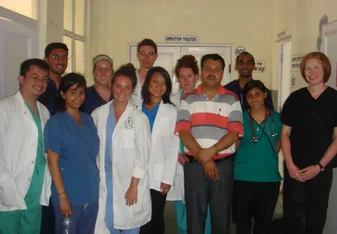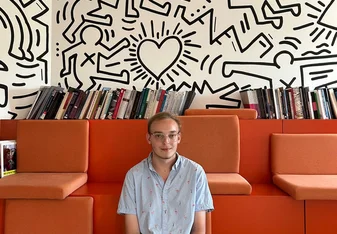Community-Based Health Research Internships with FSD
- India
- Kenya
- Uganda
- Nicaragua
- Argentina
- Salta
- Bolivia
- Cochabamba
About Program
A community's health begins with its members' well-being. Community-based health research interns will contribute their skills and knowledge in health research at the grassroots, community level at one of FSD’s sites in East Africa, India or Latin America. They will grow personally and professionally in this culturally immersive and educationally enriching program while contributing to locally-identified research topics. Interns are matched with a host organization, learn about their priorities, and work with their host-colleagues to develop a research plan aimed at supporting the organization's goals. An equally important component of this program is that interns live with FSD host-families to foster community integration and cultural understanding.
Video and Photos
FSD partners with over 250 community-based organizations globally that provide a wide spectrum of local services that are crucial to community growth and wellbeing. These organizations work in a variety of development sectors, including public health, education, human rights, environmental sustainability, and gender equity. Research Interns have the opportunity to interact with host communities by conducting culturally-appropriate interviews, surveys, focus groups, and discussions. Many of FSD’s partner organizations have limited resources to conduct research, but they understand the importance of well conducted community-based research and are eager to work with interns to support their needs to better understand the issues they strive to address.
While an academic background in research will contribute to the interns’ familiarity with important research principles, “community-based research” involves frequent interaction with community members in a culturally-sensitive manner and so will require flexibility and strong cross-cultural communication skills. At the end of their time in-country, they will leave the organization with a plan of how they can use the research findings to improve the work of the organization within the community.
Successful Candidates Should Be:
- A student familiar with qualitative research practices, including community based research, as well as coursework in public health or related field
- Motivated to work in rural areas and among underserved populations
- Self-motivated, able to work independently and with little material resources
- Culturally respectful, wants to learn more than teach
- Curious and a good listener
- Resilient, open-minded, and hard-working
- Creative and positive problem-solver, adaptable to challenging environments
- Genuinely interested in community development and integrating into the community
- Conversational Spanish for placements in Latin America
Examples of Past Community-Based Health Research Internships Projects:
- Potable water research in Las Salinas, Nicaragua where an intern worked to find correlation and causation to drinking water sources and infectious diseases.
- Conducting ayurvedic medicine research to demonstrate the medicinal value of local plants in rural India commonly used for holistic healing.
- Work with an HIV/AIDS clinic to collect community information in order to better understand the particular stigmas regarding HIV/AIDS, and develop a plan to combat mistruths among the community.







